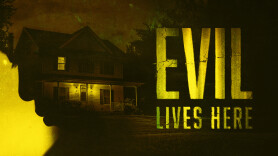From mystery to history to crime and more, there’s no shortage of documentary shows exploring fascinating, unusual and sometimes downright disturbing areas of our lives and world. This list has the most-watched best documentary shows on TV right now for your viewing pleasure.
And make sure to keep coming back to this list to see the most up-to-date information on what real TV lovers are watching right now. From Datelineto Road Wars, this list will help documentary fans stay up to date on the most entertaining shows available to watch now.
Watch Guide Methodology: Using proprietary viewership data, DIRECTV Insider curates lists of the most popular TV shows and movies being watched by real people, in real time, to help you pick the best trending content to watch across networks. Our rolling data collection also allows readers to see how a trending show’s ranking has changed week over week.
Start catching up on all of your favorite documentary series on DIRECTV today.
TOP TV DOCUMENTARIES & DOCUSERIES TO WATCH ON TV
Below is your go-to list of the best documentary TV shows to watch right now. Whether you’re looking for a single episode to pass the time or want to binge a whole documentary series, you can’t go wrong with the shows listed below.
1. ‘Dateline’
↔ vs. Prior Week
Dateline, premiering in 1984, takes viewers into the heart of compelling, real-life mysteries, and in-depth investigations. Get firsthand insight from those most affected and involved, as astute investigators delve into the grim aspects of tragedy, questioning every detail and turning over every stone. Dateline creates a captivating amalgam of mystery, drama and real-life emotion. Experience the emotional tumult of families confronting trauma and the relentless pursuit of justice as seasoned investigators uncover the truth, keeping you on the edge of your seat throughout each chilling episode.
2. ‘The Food That Built America’
↑ 5 vs. Prior Week
The Food That Built America is an epic culinary journey through time and American gastrology. Learn about the visionary moguls and entrepreneurs who risked it all to bring their food inventions to the masses, including Coca-Cola, McDonalds, and other iconic food brands. From the invention of Hershey’s chocolate to the rise of fast food, this series tells the fascinating stories behind the foods and brands we love.
3. ‘Very Scary People’
↑ 3 vs. Prior Week
Take a gripping journey into the twisted minds of the most notorious villains with Very Scary People. Hosted by the energetic Donnie Wahlberg, this eerie docuseries explores the chilling real-life stories of frighteningly infamous characters who have terrorized individuals and communities alike. From household names like Charles Manson to lesser known but equally horrifying figures, each episode is a thrilling deep dive into the life and crimes of these terrifying individuals. Embrace the growing sense of dread and anticipation while getting a close look at the darkness in humanity that depicts the true horror genre of real life.
4. ‘History’s Greatest Mysteries’
↔ vs. Prior Week
Uncover some of history’s most fascinating and controversial events with History’s Greatest Mysteries, hosted by Laurence Fishburne. Using the latest research and state-of-the-art technology, the show unravels enduring enigmas, from the sinking of the Titanic to the assassination of President John F. Kennedy. As fascinating as they are puzzling, these mysteries make for an irresistible watch.
5. ‘To Catch a Smuggler’
↑ 3 vs. Prior Week
Dive into the fast-paced world of international smuggling with To Catch a Smuggler. This riveting docuseries takes viewers behind-the-scenes with the U.S. Customs and Border Protection and National Geographic as they work tirelessly to intercept illegal goods and prevent smuggling attempts. Witness the high-stakes drama as officers and agents use cutting-edge technology and old-fashioned intuition to collar daring smugglers. A thrilling blend of reality, investigative journalism and true-crime drama, this show will have you on the edge of your seat as it unveils the world of smuggling and the heroes who fight against it.
6. ‘Evil Lives Here: The Killer Speaks’
↑ 3 vs. Prior Week
In Evil Lives Here: The Killer Speaks, unmask the intricate psychology of notorious killers, from those most intimately connected to them. This chilling series presents gruesome narratives, each episode plunging viewers into the psyche’s cold depths of these infamous criminals. Immerse yourself in an investigative journey through the perspective of partners, family and friends enlightening us on the most heinous crimes in memory.If you have a fascination with criminology or the human mind’s darker sides, this moodily riveting series offers a unique glimpse into the world that lives alongside us unnoticed.
7. ‘Modern Marvels’
↑ 7 vs. Prior Week
Experience the wonders of human ingenuity in the long-running series Modern Marvels. Since 1993, this fantastic documentary series has been enlightening viewers about the extraordinary minds and processes behind everyday items and high-tech marvels.
Journey into the creation of massive structures and practical inventions, from the Statue of Liberty to your favorite distilled spirits, and the fascinating science and technology that support them. From a deep dive into engineering and architecture to the intricate world of mass production and agriculture, Modern Marvels pays tribute to achievement, and the doers and dreamers who defy precedent to shape our world.
8. ’30 for 30′
↑ 1 vs. Prior Week
Step into the dynamic world of sports history with ESPN’s critically acclaimed documentary series, 30 for 30. Launched in 2009, the series provides a riveting exposition of the most significant sports events and legendary figures. Each episode thoroughly explores not only the game itself but the intricate web of stories, people and drama behind it, delivered by a different filmmaker’s unique perspective. Dive deep into decades of notable sports happenings, legendary upsets and epic athlete profiles that changed the nature of sports. Immerse yourself in the ultimate sports retrospective with 30 for 30.
9. ‘Fatal Attraction’
↑ 6 vs. Prior Week
Immerse yourself in the addictive world of Fatal Attraction, a gripping TV series that tells real stories of romances that turned deadly. Each episode chronicles different chilling tales of love affairs that rapidly spiraled into uncontrollable obsessions. Fueled by jealousy, lust or revenge, these relationships transform into attractions with deadly consequences.With incredible infidelities and shocking betrayals, Fatal Attraction keeps you on the edge of your seat, making you question just how well you can truly know someone. Tune in to explore the darker side of romance, and the consequences it holds.
10. ‘Expedition Unknown’
↑ 8 vs. Prior Week
Josh Gates is about as close as you can get to a real-life Indiana Jones. Join Gates as he journeys to some of the world’s most remote regions seeking answers to age-old mysteries or exploring the site of recently discovered archaeological treasures on Expedition Unknown. Gates brings an infectious enthusiasm to each adventurous episode, intertwining suspense, science and exploration in a must-watch show for adventure enthusiasts.
11. ‘Evil Lives Here’
↓ 1 vs. Prior Week
Evil Lives Here puts a spotlight on the horrifying experience of living with a killer. In each chilling episode, friends and family of people convicted of murder or other heinous crimes recount their personal experiences, offering an unsettling yet compelling exploration into the human condition. This series is not for the faint of heart but is a must-watch for those curious about the darkest corners of human behavior.
12. ‘Expedition X’
↓ 1 vs. Prior Week
Dive into the thrilling world of the unknown with Expedition X. Join adventurer Josh Gates, scientist Phil Torres and paranormal researcher Jessica Chobot, as they investigate gripping reports of supernatural encounters, mysterious creatures, and unexplained extraterrestrial phenomena. Each episode sees the trio exploring an unraveling mystery that defies conventional understanding, leveraging scientific knowledge, research expertise and a healthy dose of courage. This exciting expedition unearths chilling tales and leaves no stone unturned in the quest for truth. Experience the extraordinary and awe-inspiring in the world of the unseen with Expedition X.
13. ‘Snapped’
↓ 4 vs. Prior Week
Immerse yourself in the dark world of true crime with Snapped. This chilling docuseries delves into the lives of seemingly ordinary women who shockingly turn into cold-blooded killers. Each episode unravels a new crime, gradually unveiling the killer’s motives, method and inevitable downfall in great detail.
From crimes of passion to premeditated murders, Snapped covers a variety of shocking cases that will leave you questioning what drives someone to kill. Witness the startling transformation from everyday woman to convicted murderer, only on Snapped.
14. ‘Cold Case Files’
↓ 1 vs. Prior Week
Immerse yourself in the gripping world of Cold Case Files where unsolved mysteries meet relentless law enforcement. Initially released in 1999, this riveting series explores the relentless pursuit of justice as law enforcement officials dig deep into chilling cold case investigations. With each episode loaded with fascinating twists and unexpected turns, detectives tirelessly sift through archives and gather new evidence to bring resolution to old cases. In Cold Case Files, the detail is in the evidence and no stone is left unturned. Dive headfirst into a suspenseful journey of mystery, dedication, and steadfast determination.
15. ‘Road Wars’
↓ 1 vs. Prior Week
Journey into America’s winding highways and byways with Road Wars. This gripping documentary series offers an intriguing exploration of the best and worst of human behavior on the roadways. From jaw-dropping accidents and extreme weather to surprising acts of kindness, every episode is packed with riveting action and raw emotion. Road Wars will have you on the edge of your seat as it compellingly captures the heart and chaos of American life on the move. Delve into the unpredictable world of road travelers and witness everyday situations turn extraordinary.
And there you have it: the most popular documentary shows available to watch on TV right now. Stay tuned for updates, so you can keep up with the best TV content with DIRECTV.
For those who aren’t DIRECTV customers, make the switch today! Get all the best channels, shows, movies and more. And with four unique packages, there’s something for everyone.
And for more information on the top shows and movies to watch right now, check out these other lists:
- Top 10 Biopics to Watch Right Now
- Top TV Shows Based on a True Story
- Top 10 Tastiest Cooking Shows to Enjoy
- The Most Interesting Scientific Shows to Watch
- Top Talk Shows to Watch Right Now
- 10 Reality TV Shows Anyone Can Enjoy
![]()
Frequently Asked Questions
What is a docuseries?
A Docuseries is a documentary tv show that is fact based and dives into a specific event, person or topic.
What are the most popular documentary show genres?
True crime, history, educational
Which TV channel has the best documentary series to watch?
History Channel, National Geographic, PBS, A&E
DIRECTV Insider brings you our views on what’s happening in streaming, t.v., movies and sports. Companies and persons mentioned are not necessarily associated with and do not necessarily endorse DIRECTV. We will disclose sponsored content on our site when we show it to you, and some of the links on the site may be ads or affiliate links which means DIRECTV may earn compensation from your purchases.










